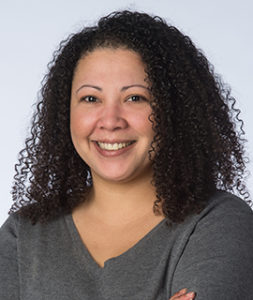
Home » Nice Tri: Spokane businesses look to Tri-Cities for expansion
Nice Tri: Spokane businesses look to Tri-Cities for expansion
Acquisitions often provide inroads into market

July 20, 2023
The Tri-Cities area offers more than just a hot climate for Spokane-based companies’ expansion plans, according to some business owners whose companies have established a presence there.
The area’s proximity to Spokane, similar market conditions, and opportunity for growth all are compelling reasons to open locations in the Tri-Cities market, some Spokane-based business owners say.
“Our markets have so many synergies,” says Fernando Jauretche, principal and Inland Northwest president at Freeform, which acquired a company in Tri-Cities earlier this year. “It makes a lot of sense for companies like us to be able to serve a greater area but be within driving distance, if we need to.”
Known largely for being home to the Hanford Site nuclear reservation and the massive government contracts that come with it, Tri-Cities is located about 160 miles southwest of Spokane and is comprised of three cities: Pasco, Richland, and Kennewick, Washington. Located at the confluence of the Columbia and Snake rivers, the cities have a combined population of 245,100, slightly more than the city of Spokane and roughly half that of the greater Spokane area.
Jauretche says Freeform’s March acquisition of 75-year-old Brutzman’s Office Solutions brought the company to the Tri-Cities, where it’s revamping and rebranding a showroom for an expected fall reopening. The acquisition of the Richland company has supplied the missing piece in Freeform’s geographical service area, which now includes south-central Washington and eastern Oregon, he says.
As previously reported in the Journal, Freeform is a commercial furniture dealer and interior services company with Spokane roots that merged with Boise-based Business Interiors of Idaho last year.
Freeform now has locations in Boise, Spokane, and Richland.
Joshua Tripp, principal at Spokane-based Place Landscape Architecture LLC, says his company began working in the Tri-Cities area about 15 years ago and opened an office in Richland three years ago.
At the time, Tripp considered the Tri-Cities for expansion mainly for its proximity to the company’s Spokane headquarters, he says.
Tripp says having an office in the Tri-Cities area also enables the company to serve local and surrounding markets more efficiently. He adds that the Tri-Cities has been a steady source of business since 2020, and business activity there is starting to pick up this year.
He declines to disclose Place Landscape Architecture’s annual revenue but says that the Richland location provides about 10% of the company’s annual revenue. In the next five years, he says, the Tri-Cities office is targeted to grow to 35% to 40% of the company’s annual revenue.
Bill Bouten, president of Bouten Construction Co., of Spokane, says his company has had a presence in the Tri-Cities since the 1960s and opened an office in Richland in 2010.
While both Freeform and Place Landscape Architecture are relatively new additions to the Tri-Cities, Bouten’s experience there is a testament to how the region supports growth.
Other Spokane-area companies that have established a presence in the Tri-Cities include Wake Up Call, a coffee business in Spokane known for its red phone booths that recently acquired Oregon-based Black Rock Coffee Bar’s Tri-Cities area coffee shops.
Also, Mid-Columbia Media Inc., a subsidiary of Cowles Co. affiliated with the Journal of Business, acquired the Tri-Cities Area Journal of Business and the Senior Times newspapers at the beginning of this year.
STCU, of Liberty Lake, most recently opened a Pasco, Washington, branch in 2020 after entering the market about six years ago.
Additional concerns from the Spokane area that have a Tri-Cities presence include Walker Construction Inc., Numerica Credit Union, and the Kiemle Hagood commercial real estate brokerage.
Bouten says having a presence in Tri-Cities strategically helps the company win new work in Central Washington and in northeast Oregon.
He says the region remains a sustainable market for Bouten Construction because of work opportunities within a 100-mile radius of the area. Having a Tri-Cities office location also helped Bouten Construction win major projects in Prosser, Washington, and in La Grande, Oregon, and helped the company earn work in a variety of industries, he says.
Bouten says, “That economy grows down there because there’s always so much money flowing into it. There’s the wine industry, there’s agriculture, there’s health care, and there’s so many dollars flowing into that economy. That’s why it never slows down.”
In addition to the proximity to Spokane, Jauretche says both areas have similarities in customer behaviors, outlooks, and expectations, with many people in both communities focused on community, recreation, and long-term, local relationships with businesses.
He says that Freeform was able to establish those local relationships quickly and ingratiate itself in the Tri-Cities community through Bautzman’s longtime clients that stayed on after the acquisition.
“We could just open an office down there, and so could anybody else, but I think it takes a long time, both in Spokane and in Tri-Cities, to build that local trust,” says Jauretche. “So, acquisitions are a little bit of a shortcut.”
Tripp, of Place Landscape Architecture, concurs. He says the company works with a few families in the Tri-Cities each year to provide services for free in addition to supporting the Wishing Star Foundation as a way to show local community involvement.
In addition to the growth of the region, the Tri-Cities also allows for greater diversification of Freeform’s business, which is key to surviving uncertain economic conditions, says Jauretche.
“The one area that Freeform doesn’t do a lot of business in outside of Fairchild Air Force Base is government work. But there’s a ton of government business down around the Hanford region and in the Tri-Cities,” he says.
Jauretche says that the company’s goal is to have a hand in a variety of different vertical markets including health care, corporate, higher education, and government work.
“When there’s ups and downs in the economy, it’s usually not equal through all sectors,” says Jauretche. “Sometimes health care goes down and corporate goes up. Government work is always up when there’s a recession, which some people are forecasting. So, it will benefit us to have more government business that diversifies our customer base.”
Latest News Real Estate & Construction
Related Articles
Related Products





